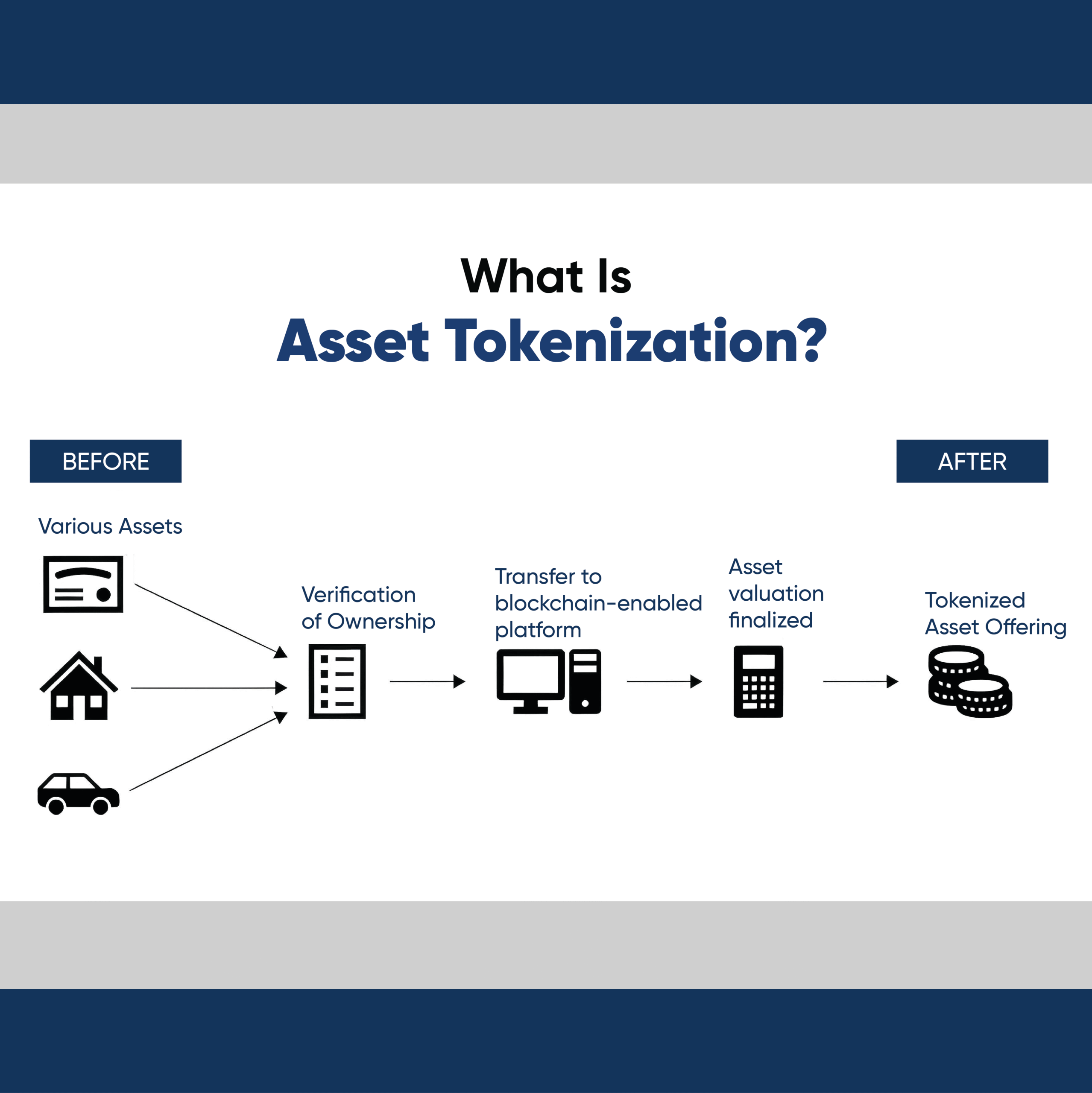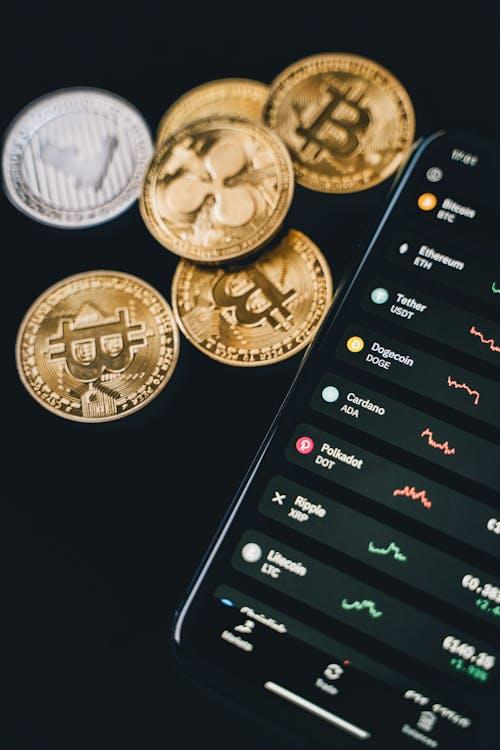Welcome to the era where finance meets the future—where the age-old equity markets are getting a digital facelift. Tokenized equities are not just a buzzword; they’re the next big thing in democratizing investment opportunities. Let’s dive into this transformative trend that’s reshaping how we perceive and interact with equity markets.

What Are Tokenized Equities?
Imagine owning a slice of a company, but instead of a paper certificate or a digital entry in a traditional brokerage, you hold a cryptographic token on a blockchain. That’s tokenized equity. Each token represents ownership in a real-world equity—like Apple, Tesla, or even private company shares—recorded on a decentralized ledger. These tokens are built using smart contracts, often on blockchains like Ethereum, Polygon, or Avalanche, and mimic the value and rights of traditional shares (sometimes even including dividends and voting rights, depending on the structure).

Breaking Down the Tech
Tokenized equities are powered by blockchain’s ability to track ownership and transactions without needing a central authority. Think of a blockchain as a digital spreadsheet shared among thousands of computers. Once an equity is tokenized—basically broken down into digital shares—it can be bought, sold, and traded peer-to-peer, with every movement recorded immutably. Smart contracts—self-executing lines of code—handle the rules: who can trade, what compliance checks must be met, and how settlements happen.
There are two major types of tokenized equities: synthetic tokens and asset-backed tokens. Synthetic tokens simulate the price of a real stock but aren’t tied to ownership. Think of these like stock CFDs (contracts for difference). On the flip side, asset-backed tokens are linked directly to real-world shares and come with ownership rights, making them the go-to model for institutional and regulated platforms.
Why This Matters: The Accessibility Factor
Equity markets are traditionally wrapped in red tape. To invest in a foreign stock, for example, you might need a special brokerage account, jump through currency conversion hoops, and wait days for settlement. With tokenized equities, all you need is a crypto wallet and access to a decentralized exchange or a regulated platform like Securitize or INX.
Want to invest $10 in Berkshire Hathaway stock, which trades at over $500,000 a share? Tokenized equities make that possible by fractionalizing ownership into micro-shares. That’s not just convenient—it’s revolutionary.
Bridging the Gap Between TradFi and DeFi
Tokenized equities live at the crossroads of traditional finance (TradFi) and decentralized finance (DeFi). Institutions are exploring how they can bring real-world assets (RWAs) into the DeFi ecosystem—where lending, borrowing, and staking can happen 24/7. By representing real equities as digital tokens, they become programmable assets that can interact with DeFi protocols, be used as collateral, or plugged into automated investment strategies.
This merging of systems is already in motion. Swiss-based SIX Digital Exchange (SDX), Germany’s Deutsche Börse, and even the London Stock Exchange are actively researching or piloting projects to tokenize publicly listed companies.

Compliance and KYC in a Digital World
One common concern? Regulation. But tokenized equity platforms are actively working with governments and regulators to incorporate KYC (Know Your Customer) and AML (Anti-Money Laundering) protocols into smart contracts. That means access doesn’t have to equal chaos. By embedding compliance checks directly into the tech, platforms can offer the freedom of DeFi with the safety net of regulated TradFi.
TL;DR: Tokenized Equities = Digital, Fractional, Borderless Ownership
They’re not just a tech trend—they’re a reimagination of how equity ownership can function in a digital-first world. Whether you’re a startup looking for new ways to raise capital, a retail investor in Argentina who wants access to U.S. stocks, or a pension fund looking to increase liquidity, tokenized equities offer a new world of flexibility and innovation.
The Allure: Why Tokenized Equities Matter
1. Democratizing Access
Traditional equity markets often have high entry barriers. Think hefty minimum investments, complex procedures, and limited access to certain markets. Tokenization breaks these barriers. By fractionalizing shares, it allows investors to own portions of high-value stocks, making investing more inclusive.
2. Enhanced Liquidity
Tokenized equities can be traded 24/7 on digital platforms, unlike traditional markets with fixed trading hours. This continuous trading capability can lead to increased liquidity, benefiting both investors and companies.
3. Transparency and Security
Blockchain’s immutable ledger ensures that all transactions are transparent and tamper-proof. This reduces the risk of fraud and enhances trust among investors.
4. Cost Efficiency
By eliminating intermediaries and automating processes through smart contracts, tokenized equities can reduce transaction costs, making investing more economical.

Navigating the Risks: It’s Not All Sunshine
While the prospects are exciting, it’s essential to be aware of the challenges:
1. Regulatory Uncertainty
The regulatory landscape for tokenized securities is still evolving. Different jurisdictions have varying stances, leading to potential legal complexities for issuers and investors.
2. Operational Risks
Blockchain networks can face technical issues, from scalability challenges to potential cyber threats. Ensuring the robustness of the underlying technology is crucial.
3. Custodial Concerns
Holding digital tokens requires secure storage solutions. Loss of private keys or breaches in digital wallets can lead to irreversible losses.
4. Market Volatility
The nascent nature of tokenized equity markets can lead to higher volatility, influenced by both technological developments and regulatory news.
Institutional Embrace: The Big Players Are In
The institutional world isn’t sitting on the sidelines. Major financial entities are exploring and adopting tokenized equities:
- BlackRocklaunched its USD Institutional Digital Liquidity Fund, aiming to bring traditional assets onto the blockchain, enhancing transparency and efficiency.
- JPMorgan and Apollohave collaborated to reimagine wealth management through blockchain, focusing on tokenizing traditional and alternative investments.
- The Canton Network, backed by giants like Goldman Sachs and Microsoft, is working towards creating a blockchain network tailored for financial institutions, emphasizing interoperability and privacy.
These moves signal a broader acceptance and integration of tokenized assets into mainstream finance.
The Road Ahead: What’s Next?
The journey of tokenized equities is just beginning. As technology matures and regulatory frameworks solidify, we can expect:
- Increased Retail Participation: More platforms will emerge, allowing everyday investors to engage with tokenized equities seamlessly.
- Diverse Asset Tokenization: Beyond equities, other assets like real estate, commodities, and even art could be tokenized, broadening investment horizons.
- Global Standardization: Efforts will be made to harmonize regulations across borders, facilitating smoother international transactions.
Final Thoughts
Tokenized equities represent a fusion of traditional finance and cutting-edge technology. While challenges exist, the potential benefits—enhanced access, efficiency, and transparency—are too significant to ignore. As we stand on the cusp of this financial revolution, staying informed and adaptable will be key.
Discover Blockchain Excellence with Kenson Investments
At Kenson Investments, we offer top-tier digital asset support to help you navigate crypto asset markets. Our team of digital asset specialists is dedicated to providing legitimacy and transparency in blockchain asset investments. Blockchain asset investments consultant and Digital asset consulting for startups services are available to guide new and seasoned investors alike. We also provide expert DeFi Finance consulting services as part of our commitment to staying ahead in decentralized finance. Trust our Digital asset strategy consulting firm to help you build a solid foundation in this evolving space. Call now to explore how we can help you in this dynamic market!
Disclaimer: The information provided on this page is for educational and informational purposes only and should not be construed as financial advice. Crypto currency assets involve inherent risks, and past performance is not indicative of future results. Always conduct thorough research and consult with a qualified financial advisor before making investment decisions.
“The crypto currency and digital asset space is an emerging asset class that has not yet been regulated by the SEC and US Federal Government. None of the information provided by Kenson LLC should be considered as financial investment advice. Please consult your Registered Financial Advisor for guidance. Kenson LLC does not offer any products regulated by the SEC including, equities, registered securities, ETFs, stocks, bonds, or equivalents”














